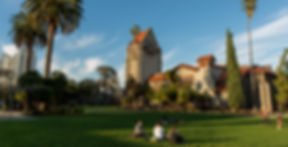

Efficient Drug-Encapsulated Nanoparticle Production
Assel Khalifeh- Biomedical Engineering Department, SJSU;
Zachariah Holder- Biomedical Engineering Department, SJSU
Dr. Melinda Simon,
Dr. Folarin Erogbogbo
Technical Advisor:
The production of drug-encapsulated nanoparticles has been established to make certain drugs more effective. However, the stability of these nanoparticles along with the reliability of production are in question. Previous research uses a multi-inlet vortex mixer in order to mix a lipid and polymer solution into one drug-encapsulated nanoparticle. This method has sufficient reliability but variable size control. Whereas previous microfluidic methods have shown better size control, however not as good reliability. This project aims to investigate a new microfluidic method, a microfluidic droplet generator, for producing nanoparticles. This method mixes the lipid and polymer into droplets
Drug-encapsulated nanoparticles have been demonstrated to be more effective in medical treatments, especially with how precise they are with treating medical conditions such as killing tuberculosis bacteria cells, decreasing the side effects on the whole body. For this research a microfluidic droplet generator made of PDMS will be used where the lipid and polymer would enter from two different inlets and nanoparticles will form then flow through channels until they reach the outlet and will be gathered to be measured. This would help in the production of more uniformed nanoparticles allowing a better drug encapsulation and dispersion resulting in more effective medical usage and will increase the reliability. The uniformity and dispersion of nanoparticles produced will be measured using a light scattering machine then compared to previous studies using statistical analysis to better understand the results of this research.